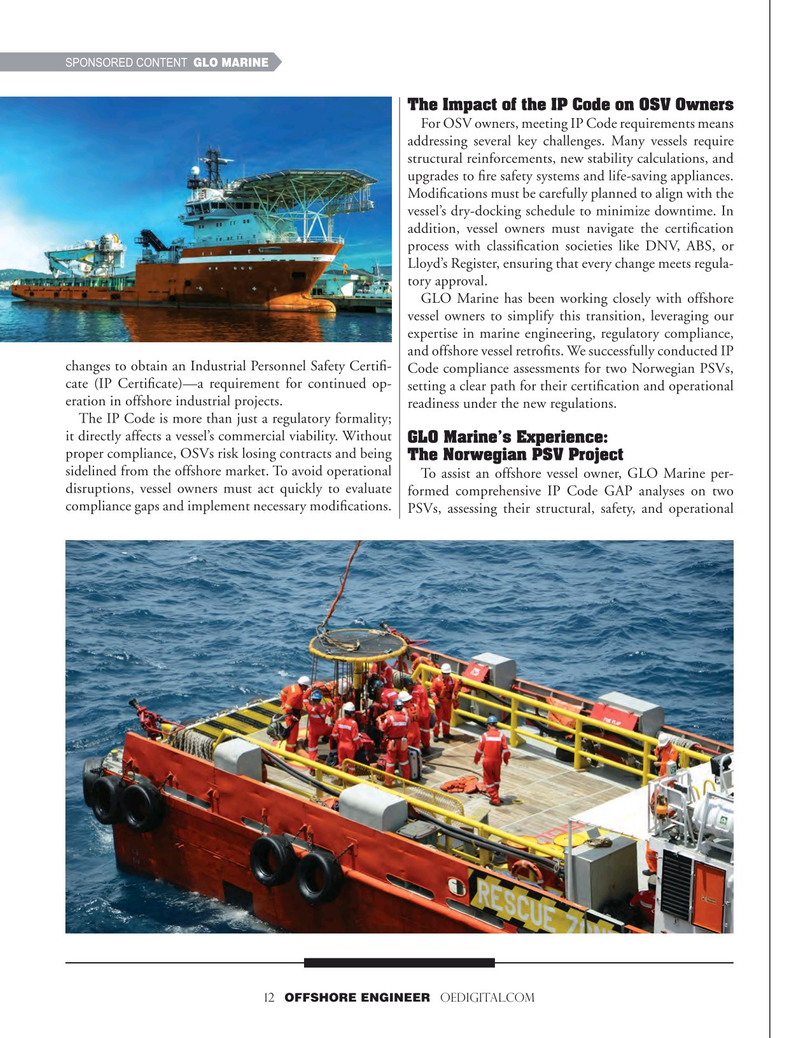
Page 12: of Offshore Engineer Magazine (Mar/Apr 2025)
Read this page in Pdf, Flash or Html5 edition of Mar/Apr 2025 Offshore Engineer Magazine
SPONSORED CONTENT GLO MARINE
The Impact of the IP Code on OSV Owners
For OSV owners, meeting IP Code requirements means addressing several key challenges. Many vessels require structural reinforcements, new stability calculations, and upgrades to fre safety systems and life-saving appliances.
Modifcations must be carefully planned to align with the vessel’s dry-docking schedule to minimize downtime. In addition, vessel owners must navigate the certifcation process with classifcation societies like DNV, ABS, or
Lloyd’s Register, ensuring that every change meets regula- tory approval.
GLO Marine has been working closely with offshore vessel owners to simplify this transition, leveraging our expertise in marine engineering, regulatory compliance, and offshore vessel retrofts. We successfully conducted IP changes to obtain an Industrial Personnel Safety Certif-
Code compliance assessments for two Norwegian PSVs, cate (IP Certifcate)—a requirement for continued op- setting a clear path for their certifcation and operational eration in offshore industrial projects.
readiness under the new regulations.
The IP Code is more than just a regulatory formality; it directly affects a vessel’s commercial viability. Without GLO Marine’s Experience: proper compliance, OSVs risk losing contracts and being The Norwegian PSV Project sidelined from the offshore market. To avoid operational
To assist an offshore vessel owner, GLO Marine per- disruptions, vessel owners must act quickly to evaluate formed comprehensive IP Code GAP analyses on two compliance gaps and implement necessary modifcations.
PSVs, assessing their structural, safety, and operational 12 OFFSHORE ENGINEER OEDIGITAL.COM

 11
11

 13
13